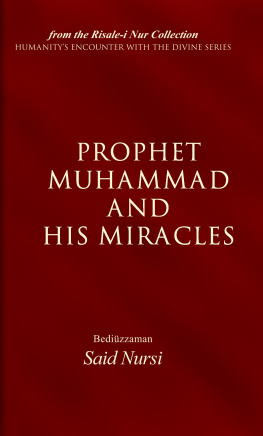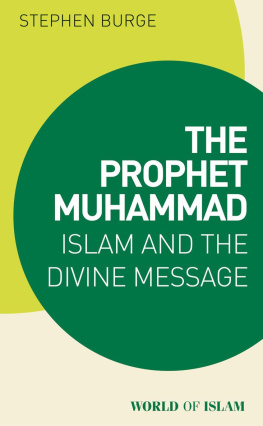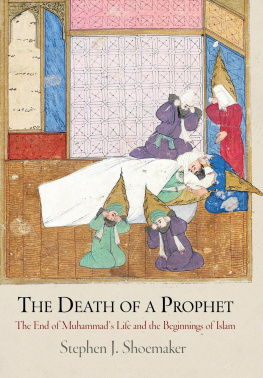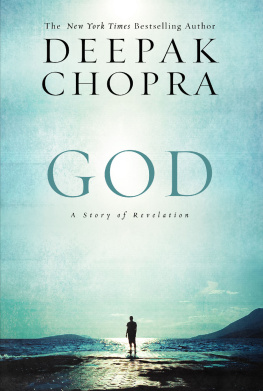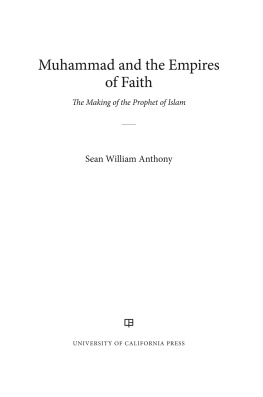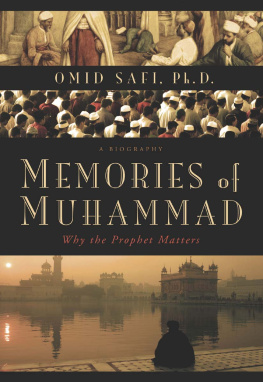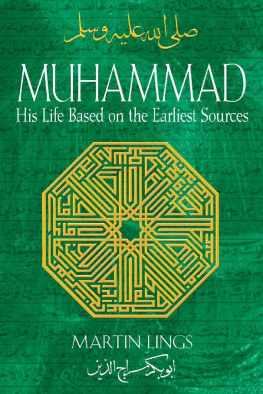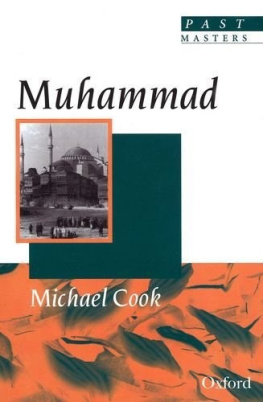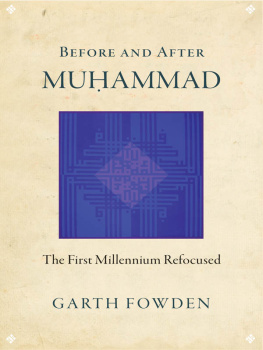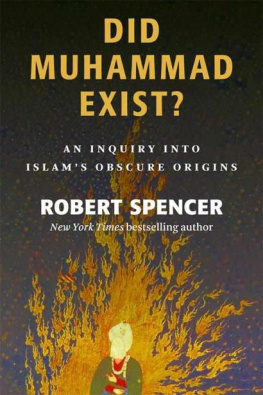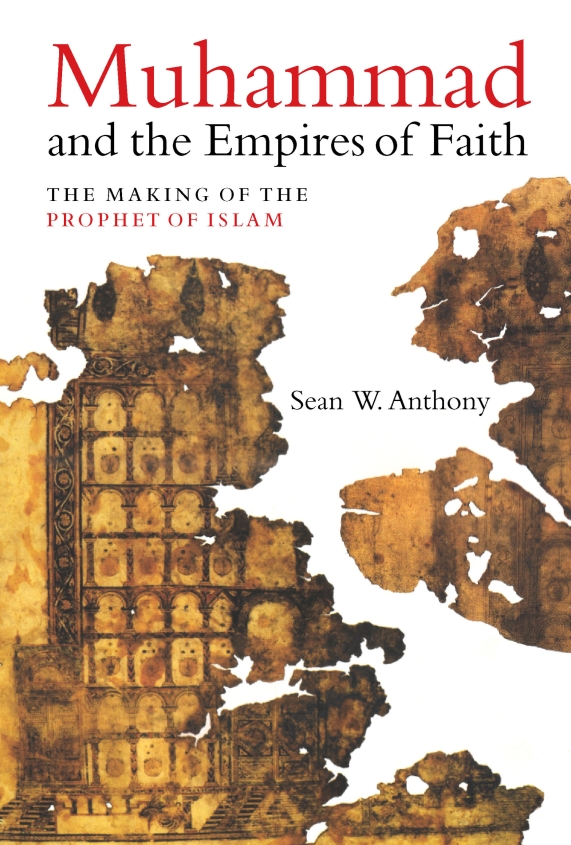ACKNOWLEDGMENTS
Many of the ideas underlying this book began to emerge early in 2012, when I first began translating one of our earliest surviving examples of a literary biography of the prophet Muammad: the eighth-century Kitb al-Maghz of Mamar ibn Rshid, subsequently published in New York University Presss Library of Arabic Literature series in 2015. Shortly after I finished the project, the editorial board of the Library of Arabic Literature (to my great surprise) took me under their wing and even invited me to join their ranks. Ever since, I have had countless discussions and exchanges with them about the ideas in this book, Arabic literature in general, and life writ largeso much so that it is impossible to keep track of the debt that this book owes them. All I know is that debt is large. So to Phil Kennedy, James Montgomery, Shawkat Toorawa, Julia Bray, Michael Cooperson, Joseph Lowry, Tahera Qutbuddin, Devin Stewart, and Maurice Pomerantz, I extend my deepest thanks for keeping the fire in my bones for Arabic and its literary heritage well kindled.
In Fall 2013, I arrived in Princeton with a Mellon fellowship at the School of Historical Studies at the Institute for Advanced Study. My intent was to work on my still unfinished book on early Shiite apocalypticism, but with my translation of Mamars Maghz still fresh in my mind, I mostly ended up working on and researching topics and issues that appear in this book. My good friend Stephen Shoemaker shares part of the blame for thiswe ended up with offices facing each across the hall that autumn, and we couldnt resist constantly debating the historical Muammad. Were still debating, and hes still teaching me a thing or two as well. The early stages of this book benefited immensely from the incredible resources of IAS and Princeton University, but even more from the faculty and fellows there. I must thank Hassan Ansari, Stefan Esdars, Sabine Schmidtke, Deborah Tor, and Jack Tannous (whos always got a great research lead for me to follow) for lending their help and erudition to the early stages of the project. Above all, I would like to express my deepest gratitude to Patricia Crone (requiescat in pace), whom we lost to cancer, and who is sorely missed. She was always a generous scholar. Even when I was an unknown and unproven PhD student at the University of Chicago, she generously shared her work and her insights with me, expecting nothing in return. Her encouraging comments on and helpful criticisms of the project at the earliest stage were immensely helpful. I only wish she had lived to see the final product.
Numerous other colleagues and friends who have read drafts of chapters, or sections of chapters, deserve a special word of thanks as well. I feel profoundly grateful that the likes of Ahab Bdawi, Andreas Grke, Anthony Kaldellis, Ella Landau-Tasseron, Pavel Pavlovitch, Chase Robinson, Barbara Roggema, May Shaddel, and Kevin van Bladel all took time out their busy schedules to lend me their insights, offer criticisms, and point out oversights and mistakes. Likewise, I would like to express my heartfelt appreciation to the editors at the University of California Press, and especially to Eric Schmidt, for getting behind this book, as well as for the encouragement and help offered in getting it to press.
All of these people greatly contributed to the betterment of this project, but it would scarcely have been possible, or even worthwhile, without the love and support in trying times of my wife, Catherine Bronson, and our children, Julius, Suraya, and Sawim. To them I extend not just my sincerest gratitude but also my heartfelt love and affection. Together we fought dragonsand won.
THE CALIPHS, 632809
Caliphs marked with an asterisk (*) played a seminal role in the compilation and recording of the earliest traditions of the srah-maghz literature. Years are C.E.
THE EARLY CALIPHATE 63261 (MEDINA)
Ab Bakr al-iddq, 63234
Umar ibn al-Khab, 63444
Uthmn ibn Affn, 64456
In Kfah: |
Al ibn Ab lib, 65661 | (First Civil War 65661, begins with the assassination of Uthmn and ends with the assassination of Al and asan ibn Als peace with Muwiyah) |
THE UMAYYAD DYNASTY 661750 (SYRIA)
The Sufynids
Mawiyah ibn Ab Sufyn, 66180 |
Yazd I ibn Muwiyah, 68083 | (Second Civil War 68392, begins with the rebellion of Abdallah ibn al-Zubayr and his establishment of a rival caliphate in Mecca and ends with his defeat and the bombardment of the Kabah in Mecca by Umayyad forces in 692) |
The Marwnids
Marwn I ibn al-akam, 68485
*Abd al-Malik ibn Marwn, 685/692705
*al-Wald I ibn Abd al-Malik, 70515
*Sulayman ibn Abd al-Malik, 71517
*Umar II ibn Abd al-Azz, 71720
Yazd II ibn Abd al-Malik, 72024
*Hishm ibn Abd al-Malik, 72443 |
al-Wald II ibn Yazd, 74344 | (Third Civil War 74450, Yazd III assassinates al-Wald II in a putsch, and in the East the Hshimite movement in Khursn launches a call to install a descendant of the Prophets clan, the Ban Hshim, as caliph, eventually replacing the Umayyads with the Abbasids) |
Yazd III ibn al-Wald, 744
Marwn II al-imr, 74450 |
THE ABBASID DYNASTY (IRAQ)
Ab l-Abbs al-aff, 75054 |
*Ab Jafar al-Manr, 75475 | (762, Baghdad founded as the new imperial capital) |
*al-Mahd, 77585
al-Hd, 78586
Hrn al-Rashd, 786809 |
KEY EARLY COMPILERS OF THE SRAH-MAGHZ LITERATURE
Urwah ibn al-Zubayr (born ca. 643, Medina; died 713, Medina)
A prominent notable of Quraysh from the Asad clan, the son of the eminent Companions of the Prophet al-Zubayr ibn Awwm and Asm Dht al-Niqayn, the daughter of the caliph Ab Bakr. He was revered as one the seven learned men ( fuqah ) of Medina. His correspondence with the Umayyad caliphs Abd al-Malik and al-Wald I may be the earliest surviving biographical writings on the Prophet Muammad in Arabic.
Ibn Shihb al-Zuhr (born ca. 670, Medina; died 742 at his estate in al-Adm in the ijz)


